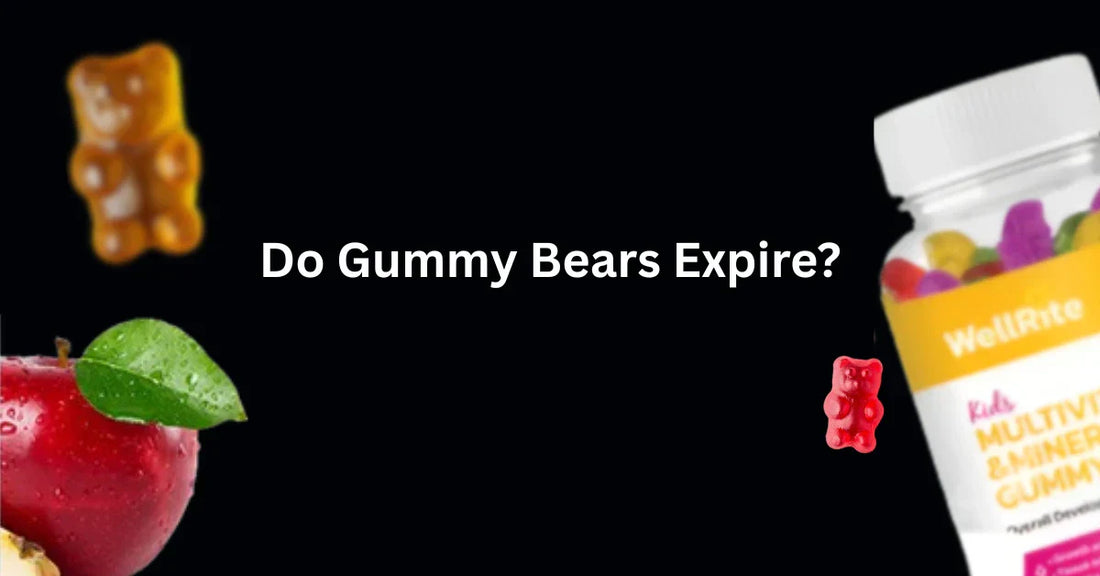
Do Gummy Bears Expire?
Share
Yes, gummy bears do expire. Like all food products, they come with a shelf life, typically ranging from 12 to 24 months from the manufacturing date.
While they contain preservatives and a high sugar content that naturally helps inhibit bacterial growth, they are not immune to spoilage. Over time, the texture, flavor, and safety of gummy bears can degrade, especially if exposed to heat, moisture, or air.
Is It Okay to Eat an Expired Gummy Bear?
Eating expired gummy bears isn’t always dangerous, but it depends on how far past the expiration date they are and how they’ve been stored. If they still look, smell, and taste normal, they’re likely safe to eat—just a bit stale. However, expired gummies may:
-
Harden significantly or become overly sticky
-
Lose their flavor and color
-
Develop an off taste or odor
If your gummy bears show any signs of spoilage (like mold, sour smell, or strange taste), it’s best to toss them. When in doubt, don't risk it.
How to Tell If Gummies Have Gone Bad
Here are common signs that gummy bears have expired or spoiled:
-
Texture Changes: Too hard, too soft, or sticky beyond normal indicates staleness or moisture exposure.
-
Unpleasant Odor: A sour or chemical-like smell may indicate spoilage.
-
Color Fading or Discoloration: Loss of color or uneven coloring may mean they've been exposed to light or heat.
-
Mold or White Film: Mold spots or a white powdery coating (not to be confused with sugar dust) is a definite sign to throw them out.
-
Off Taste: A bitter, stale, or sour flavor is another indicator they’re no longer good.
Do Gummy Bears Expire in the Freezer?
Technically, freezing gummy bears can extend their shelf life, but it doesn't stop expiration indefinitely.
In the freezer, they’re less likely to be exposed to air or moisture, which helps preserve their texture and taste. However, even frozen, gummies can degrade over time due to:
-
Freezer burn
-
Crystallization from moisture
-
Changes in flavor or chewiness
If you choose to freeze them, keep them in an airtight, moisture-proof container and consume within 6–12 months for best quality.
Best Practices for Storing Gummy Bears
To maximize freshness and extend shelf life, follow these storage tips:
-
Keep them sealed: Use airtight containers or resealable bags.
-
Store in a cool, dry place: Avoid heat and humidity, which can melt or spoil them.
-
Avoid direct sunlight: UV exposure can degrade flavor and color.
-
Don't refrigerate: The fridge can introduce unwanted moisture unless you're in a hot climate.
-
Freeze with caution: If you freeze them, store them properly and consume within a reasonable time.
Proper storage not only preserves taste and texture but also ensures your gummy bears stay safe to enjoy.
Frequently Asked Questions:
Q 1.Do gummy bears go bad?
Yes, gummy bears can go bad over time. While they have a long shelf life due to their low moisture content and high sugar levels (which help preserve them), they’re not immune to spoilage.
Q 2.Can you eat gummy bears after the expiration date?
You can eat gummy bears after their expiration date, but it depends on how far past the date and how they’ve been stored. If they look, smell, and taste normal, they’re usually safe to eat.
Q 3.How to tell if gummy bears are bad?
Here are some signs that your gummy bears have gone bad:
- Texture change: If they’re too hard, sticky, or grainy, they may be stale.
- Off smell: Any sour, moldy, or chemical-like odor is a red flag.
- Visible mold or discoloration: Any white spots, fuzz, or color changes indicate spoilage.
- Unusual taste: If they taste sour, bitter, or just "off," it’s time to throw them out.
When in doubt, it’s best not to eat questionable candy—especially if it’s past its expiration date or poorly stored.
Final Thoughts:
Gummy bears may seem like a long-lasting treat, but they do have an expiration date you shouldn’t ignore. While they can remain edible beyond that date if stored correctly, changes in texture, taste, and appearance are signs they may no longer be safe—or enjoyable—to eat.



